Analytics

Bruegel

M
FDI another day: Russian reliance on European
investment
Most foreign direct investment into Russia
originates in the European Union: European investors own between 55 percent and 75 percent of
Russian FDI stock. This points to a Russian dependence on European investment, making the EU
paramount for Russian medium-term growth. Even if we consider 'phantom' FDI that transits through
Europe, the EU remains the primary investor in Russia. Most phantom FDI into Russia is believed to
originate from Russia itself and thus is by construction not foreign.
February 2020


